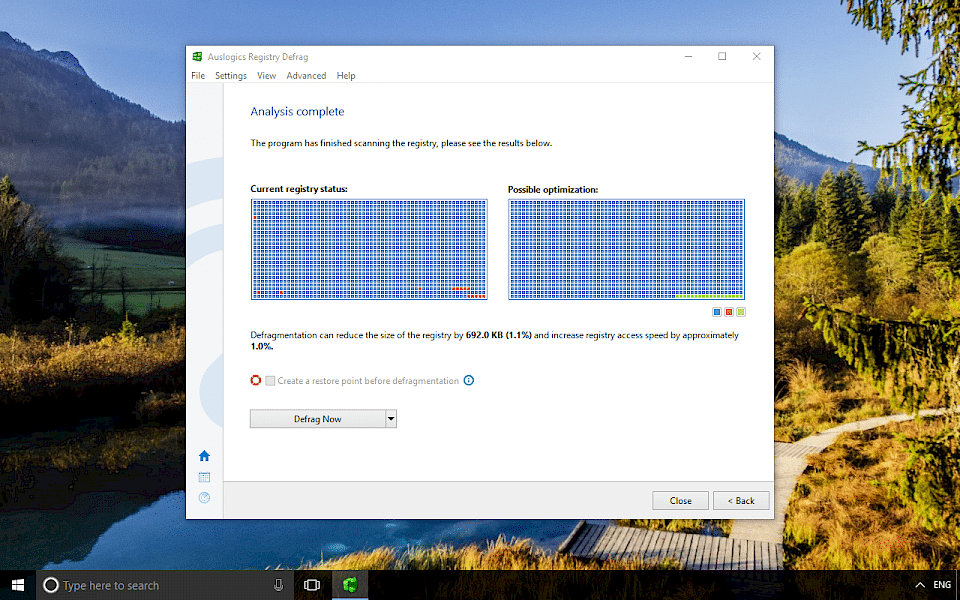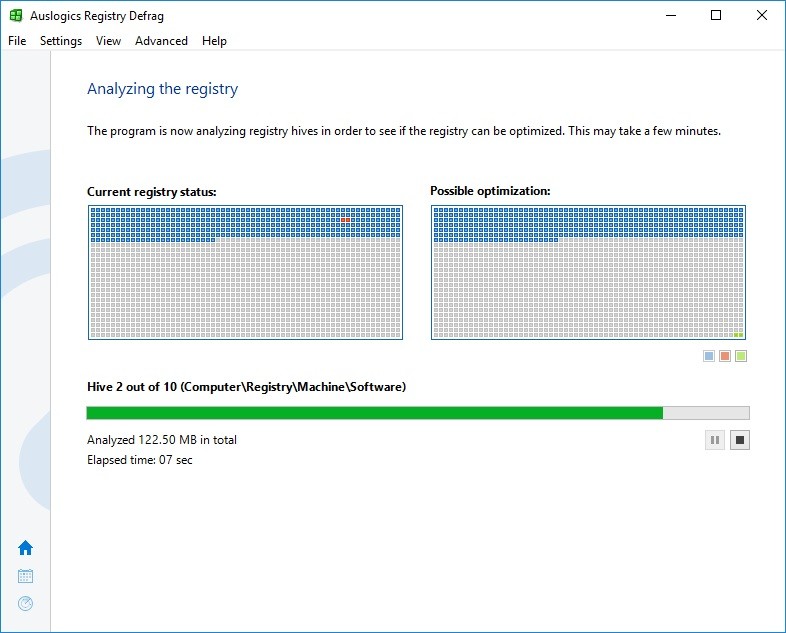

But I’ll warn you now: You won’t see a difference in performance. Auslogics Registry Defrag dramatically overpromises the imperceptible performance boosts you’ll get from running it, but at least it doesn’t tamper with your registry.

Windows 7 or Vista users will need an unofficial utility like Auslogics Registry Defrag. Microsoft offers an official PageDefrag utility for Windows XP. If you really want to defragment your registry, you don’t need a registry cleaner. The registry is loaded into your computer’s RAM when it starts, so you won’t see faster registry performance as a result of this. At first, this sounds great - your registry is constantly being used, so surely defragmenting it will offer improvements in speed, right? Registry cleaners also claim to optimize your registry, defragmenting it for faster file access. stop all unnecessary processes/programs in background (automatic HDD defragmentation, Skype, screensaver, programs like TuneUpUtilities if you are usign them.etc) that could interfere with above programs.

I had tested them few times on Win8/8.1 64bit also but I can't be 100% sure that they are perfectly safe for Win 8/8.1.Ģ). for compacting & defragmenting Windows Registry.īoth of them are perfectly safe for WinXP 32bit & Win7 32/64 bit, tested them both on thousands of rigs. for cleaning garbadge/leftover keys from Windows Registry, it's much, much better than CCleaner Registry clean option and it's 100% safe, I can guarantee you for that. Until a registry defragger or cleaner can demonstrate benchmarkable improvements to a computer, they'll be little more than 21st century snake oil.I'm using this combination od programs for years, about once a month in this order: Resource-intensive Internet browsers and e-mail clients may be piggish, but they're necessary and don't load any faster or slower than normal after running the reg defrag. It also "strongly recommends" that users close all other programs while it runs, although this is a standard warning for registry-cleaning apps.Īn expected change in clock speed or other performance benchmarks never materialized. It's a fairly serious program, and once you begin the analysis it won't let you move the mouse outside the program window.

When you run it, it tells you that it will perform a registry analysis, after which you will be able to review its registry report, and once that's done with you can run the registry optimization, requiring a reboot to defrag and compact the registry. It's hard to gauge if these programs are effective because once you're done using them, you'd need more than a mere store-bought machine with store-loaded programs to judge CPU speed. It's hard to tell if registry defraggers and cleaners work, but the Auslogics Registry Defragger looks good.


 0 kommentar(er)
0 kommentar(er)
